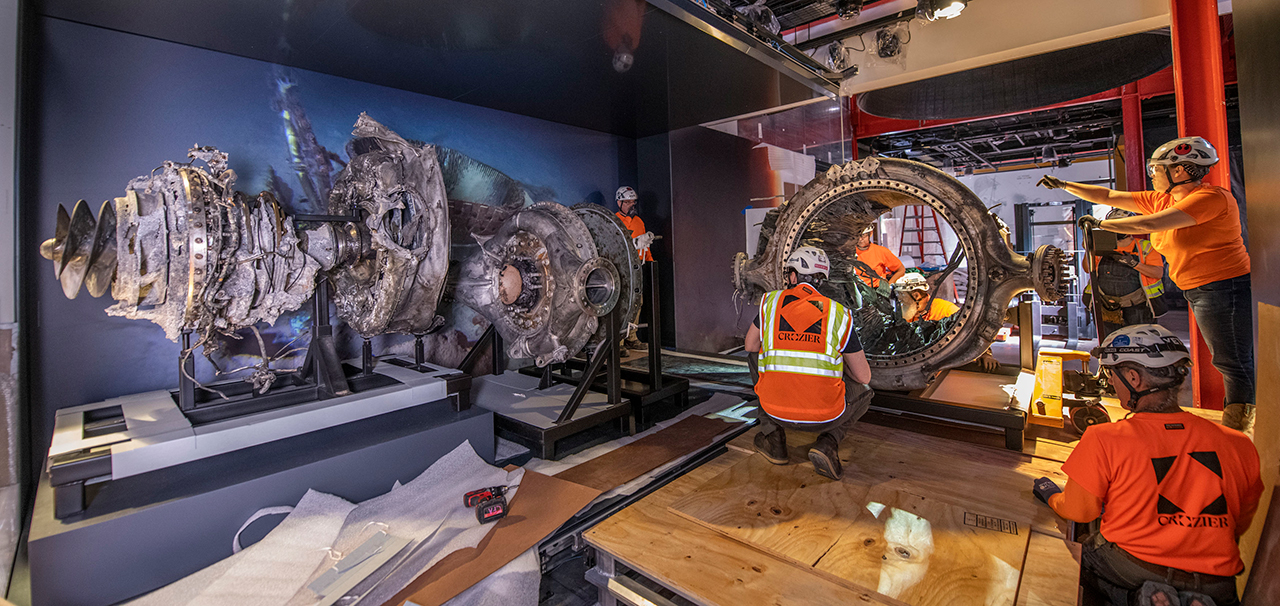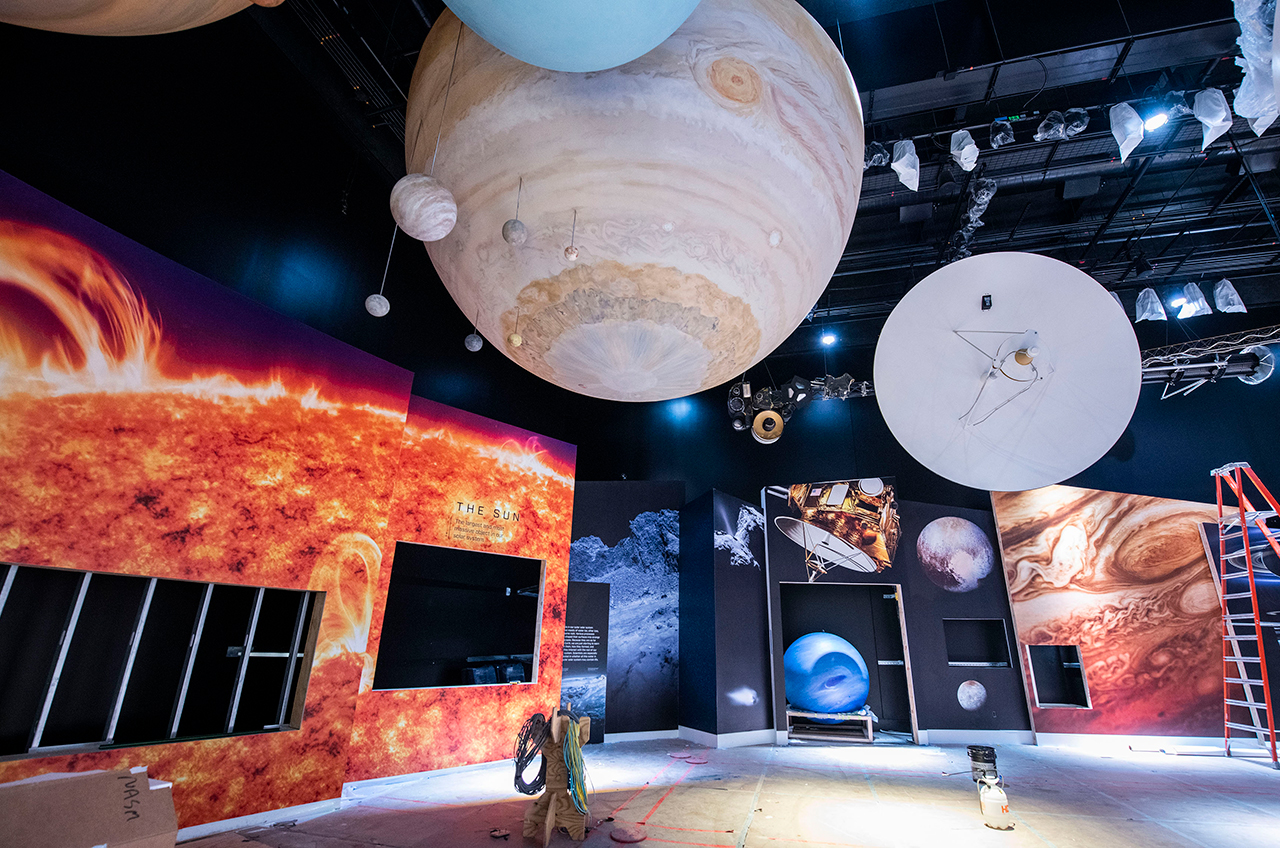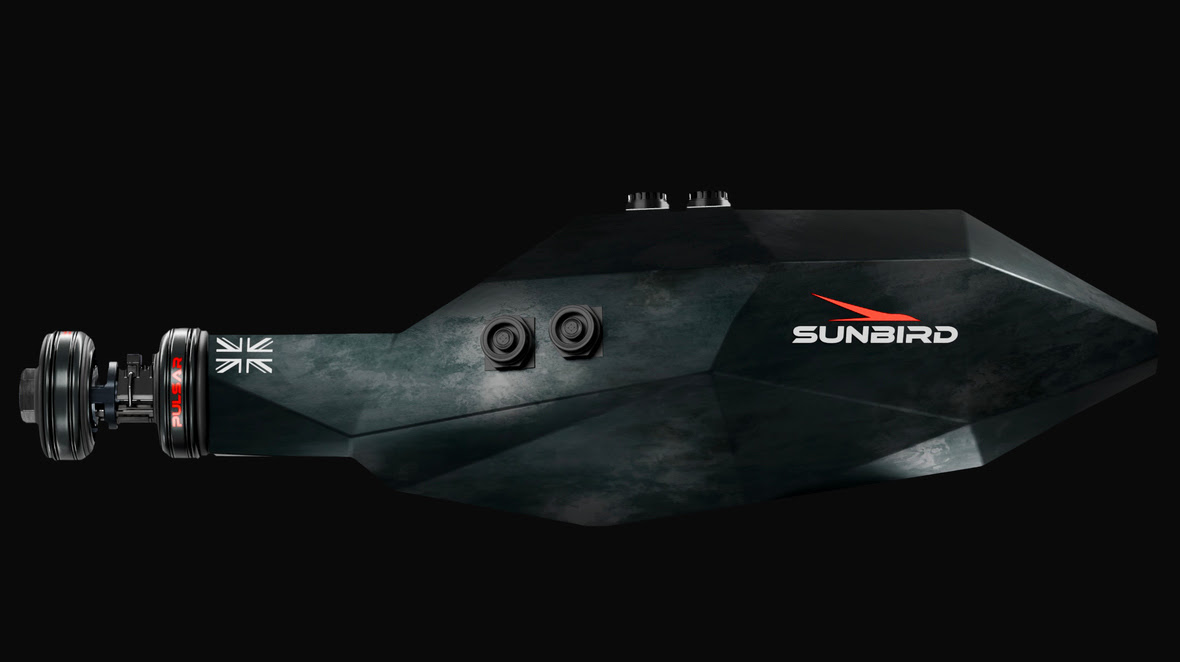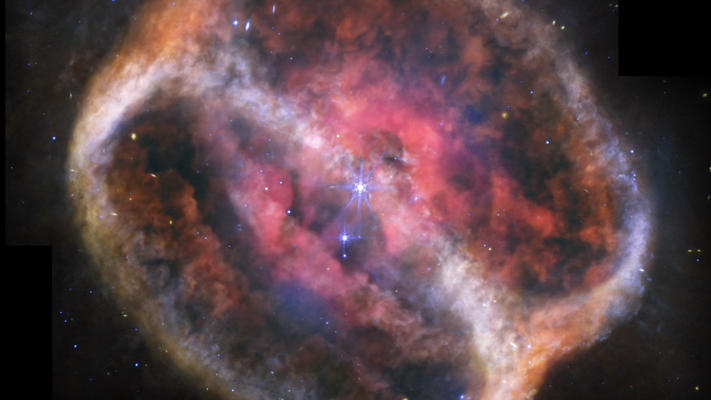Smithsonian to debut reimagined Air and Space Museum galleries on Oct. 14
'Destination Moon' and 'Exploring the Planets' are among eight renovated exhibitions set to debut.

The countdown is now on for the launch of the first reimagined galleries in the National Air and Space Museum.
The Smithsonian on Tuesday (Aug. 2) announced that, after six months being closed to the public, it will re-open half of the Washington, D.C. museum's flagship building on the National Mall on Friday, Oct. 14. Eight new and renovated exhibitions, including two focused on the history of space exploration, will debut on the building's west end.
"This is one of the most exciting times in the National Air and Space Museum's history," Chris Browne, director of the museum, said in a statement. "When we open the first reimagined galleries, we hope all visitors are inspired by artifacts on display for the first time, favorite icons of aerospace presented in new ways and diverse storytelling."
Closed since the end of March, the museum has been undergoing a seven-year renovation that began in 2018. The extensive overhaul has included the redesign of all of the museum's 23 display areas and the refacing of the building's exterior cladding, among other improvements and repairs.
Smithsonian National Air and Space Museum: America's aerospace treasures (photos)

When the museum reopens on Oct. 14 — the same day as the 75th anniversary of the breaking of the sound barrier — it will feature hundreds of artifacts new to the building, including the T-38 jet that Jackie Cochrane flew when she became the first woman to cross Mach 1. Also on display will be a full-size X-Wing Starfighter used in the filming of "Star Wars: The Rise of Skywalker," on loan from Lucasfilm.
Among the eight exhibitions making their debut will be two devoted to humanity's exploration of Earth's natural satellite and its surrounding planets.
Get the Space.com Newsletter
Breaking space news, the latest updates on rocket launches, skywatching events and more!
Replacing the museum's original "Apollo to the Moon" gallery, "Destination Moon" will use the Smithsonian's collection of Mercury, Gemini and Apollo artifacts to show how astronauts came to walk on the lunar surface. At the center of the new exhibition will be "Columbia," the Apollo 11 command module that carried the first moon landing crew to and from Earth, and the Apollo 11 spacesuit that was worn by mission commander Neil Armstrong.
Next door, in the "Kenneth C. Griffin Exploring the Planets Gallery," visitors will be able to tour the solar system and learn what it would be like to walk on another world through a new immersive and interactive experience. Featuring Mars rovers and interplanetary probes, the exhibition also draws on research from scientists in the museum's Center for Earth and Planetary Studies, who are actively involved in current planetary missions.

Other galleries re-opening or debuting on Oct. 14 include "America by Air," "Early Flight," "Nation of Speed," "One World Connected" and "Thomas W. Haas We All Fly." In "Wright Brothers and the Invention of the Aerial Age," the 1903 Wright Flyer will be displayed in a dynamic new environment that better tells the story of the invention of flying and its implication on world history.
Also returning are the museum store, Mars Café and planetarium. The latter has received significant upgrades, including new screencast abilities that will allow connection with other planetariums located around the country, vastly expanding the museum's reach.
Given the expected interest in visiting, timed-entry passes will be required. The free passes will be available from the National Air and Space Museum's website beginning on Sept. 14.
Work on the east wing of the museum is continuing. The central "Milestones of Flight" exhibition is targeted to reopen in 2024. The completion of the remaining 14 galleries and the culmination of the project are currently scheduled for 2025.
Follow collectSPACE.com on Facebook and on Twitter at @collectSPACE. Copyright 2022 collectSPACE.com. All rights reserved.
Join our Space Forums to keep talking space on the latest missions, night sky and more! And if you have a news tip, correction or comment, let us know at: community@space.com.

Robert Pearlman is a space historian, journalist and the founder and editor of collectSPACE.com, a daily news publication and community devoted to space history with a particular focus on how and where space exploration intersects with pop culture. Pearlman is also a contributing writer for Space.com and co-author of "Space Stations: The Art, Science, and Reality of Working in Space” published by Smithsonian Books in 2018.In 2009, he was inducted into the U.S. Space Camp Hall of Fame in Huntsville, Alabama. In 2021, he was honored by the American Astronautical Society with the Ordway Award for Sustained Excellence in Spaceflight History. In 2023, the National Space Club Florida Committee recognized Pearlman with the Kolcum News and Communications Award for excellence in telling the space story along the Space Coast and throughout the world.










